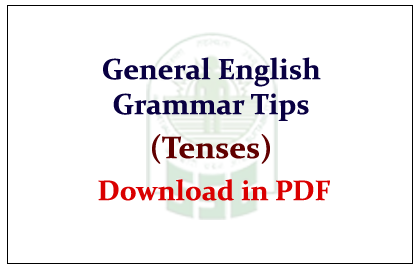16 Tenses In English Grammar Pdf


Determiners are words like the, an, this that start a noun phrase. A preposition expresses the relationship of a noun or pronoun to another word (at, in, from). Pronouns are small words like you, ours, some that can take the place of a noun.
Conjunctions join two parts of a sentence (and, but, though). Interjections are short exclamations with no real grammatical value (ah, dear, er). Sentence-level Grammar The five main types of phrase in English.
Red Vs Blue Wav Files here. Complete English tenses Present,past,future pdf dwonload,english tenses,english grammar tenses,english grammar tenses pdf,download,tense in english.
With When is a sentence not a sentence? With Declarative, Interrogative, Imperative, Exclamative. With Simple, compound, complex and compound-complex sentences. With To understand sentence construction, it helps to know about these verbs.
With The direct object receives the action of the verb directly. With The indirect object receives the direct object. With Here is the structure that we use to 'report' what another person has said. With Words added to a sentence without changing its meaning or grammar. With Including number, case, gender, tense, aspect etc.
With Grammar Theory The idea that the ability to learn a language is built into the human brain Whenever you correct someone's grammar just remember that nobody likes you. Jim Gaffigan:: Grammar.
= was = is Adjectives [ ] Words that tell you about nouns are called adjectives. When an adjective is used, you learn more about the noun. An example would be the words 'red' and 'juicy' in the phrase 'the red apple is juicy.' They do not have any endings.
Even if the noun they talk about is plural, they stay the same. You can see this in the sentence 'the red apples are juicy.'
Adverbs [ ] Adverbs are words that tell you about words that are not nouns. An adverb can describe a verb, like the word 'quickly' in the sentence 'He ran quickly.' They can also describe an adjective.
The adverb 'very' describes the adjective 'sick' in the sentence 'The boy is very sick.' Adverbs can even describe other adverbs, as in the sentence 'He ran very quickly' Prepositions [ ] A preposition is a word that describes how one noun (or pronoun) relates to another in the sentence as a whole. The preposition usually comes before the noun that they add to the sentence, which is called the of the preposition. An example is the word 'over' in the sentence 'he walked over the bridge.' Conjugations [ ] A conjugation is a word that connects other parts of a sentence. They can connect two words that both do the same thing in a sentence.
'And' in the sentence 'the boy and the girl run' connects the boy to the girl because the both run. They can even connect two clauses that would normally be different sentences together. The word 'but' in the sentence 'I like cats, but he likes dogs' is a conjunction doing this. Interjections [ ] Interjections are words that do not fit normal grammar rules. Interjections can and often do take the place of an entire sentence, as they can give they meaning of a whole sentence in a single word.
These can be used to show emotions, such as the word 'Hooray,' which means that the speaker is happy or likes something. They are also used to shorten common phrases that would otherwise need a full sentence to talk about.
For example, saying the word 'yes' is much simpler than saying 'what you say is true,' so it is usually used instead. Interjections like these can be helpful for saving time and making complex sentences very simple.
Often, though, interjections may have no meaning at all, such as the word 'um.' Syntax [ ] Grammar also studies how the parts of language work together.